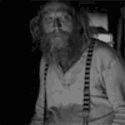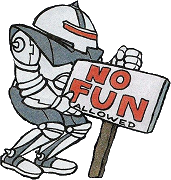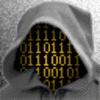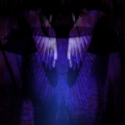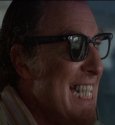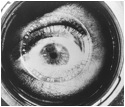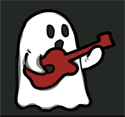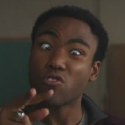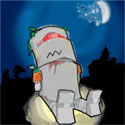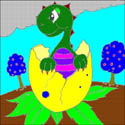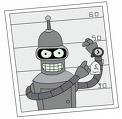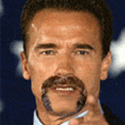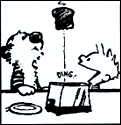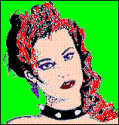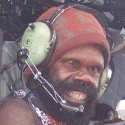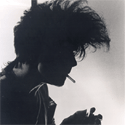|
Gladkov's Cement which is one of those books which is impossible to wrench free of context. It follows a Red Army soldier returning to his town after the revolutionary war to find himself alienated by the sweeping social changes of Communism that took place in his absence. It's a groundbreaking example of Socialist Realism, the least groundbreaking movement of all time; I don't think I'm spoiling anything when I say that the workers triumph, etc. That said, it's surprising how critical it can be of the bureaucracy and corruption of the early Soviet state, as well as disillusionment with the failure of the revolution to actually improve anything. He'd been banned and exiled by the Tsarists, and if he'd published this another 5-10 years later than he did (1924), the Soviets probably would have followed suit. Not strong enough to stand purely on its own literary merits, but it's so evidently a product of its time that it almost doesn't need to be good to be interesting. Also William Gass' Omensetters Luck, describing a cynical, ambitious preacher's grudge against an itinerant labourer who has almost divine good fortune. Very reminiscent of Faulkner run through with the kind of sensible, rural tweed-jacketedness Frost dealt in. As with most Gass it's easier to respect than to love; his tireless lack of compromise is a creative boon, but if this is a masterpiece as the press quote trumpets, it's a jerk's masterpiece. Good but a little tiring. Finally Max Havelaar by Multatuli, which was written as an expose of the corruption in the Dutch East Indies in 1860 and apparently sparked the Free Trade movement. Picked it up after reading an interview with Louis Paul Boon where the interviewer was laughed off after suggesting he was Belgium's Multatuli. Weirdly enough, also heard it compared to Stendahl which I don't get at all. A real mess, with its book in a book structure, but overall it's the disarmingly eccentric work of an egomaniac with messianic ambitions (see: Frederick Rolfe). Even the mangled deus ex machina conclusion is charming in its self-consciously indignant ineptness.
|
|
|
|

|
| # ? May 14, 2024 17:55 |
|
Finished Snow Crash yesterday. I really liked everything about it. The setting, the metaverse, the range of characters. Neal Stephenson is very good at describing an action sequence, which a lot of authors fail to do. The ending was a little abrupt, and I would have liked to see a bit more of Hiro's story wrapped up, but overall I think it was fitting.
|
|
|
|
I've been on something of a Phillip K. Dick frenzy as of late, reading The Man in the High Castle, Ubik, Do Androids Dream of Electric Sheep, Vulcan's Hammer, Dr Futurity and The Man Who Japed. I've recently been doing some of his very short stories, and finished We Can Remember It For You Wholesale a couple of hours ago, it's probably the best sci-fi story I've ever read, and only 18 pages. I think the strengths of Dick translates perfectly to short stories, as it's not so much the quuality of his writing which is attractive(he is technically proficient, but nothing amazing), but his ideas are so far ahead of his competitors, short stories just mean you get more awesome concepts per hundred pages 
|
|
|
|
Into the Wild by Jon Krakauer. This one was a very quick read. I really enjoyed his interviews with people involved with Christopher McCandless and his comparisons to other historical people that had similar modes of thinking. The two chapter tale of young Krakauer's ascent of the Devil's Thumb was definitely one of the best parts. I really want to pick up Into Thin Air and Eiger Dreams now.
|
|
|
|
bobservo posted:The Count of Monte Cristo (1844, 2003 Translation) That's interesting. I read the book in high school and it was probably the first "school read" I actually managed to get in to. Odds are I was reading the abridged version and didn't even know it, I'll have to check this out. If you're in to sci-fi, there's a book called "The Stars My Destination" by Alfred Bester that's regarded as one of the classics of the genre, and seems to be a sort of adaptation of The Count of Monte Cristo. I still haven't read it yet, but it's on my list. A Storm of Swords by George R R Martin (second reading) -  Really hope fatty squeezes out Dance by Fall, or at least the end of the year. Just from what I've re-read of the series so far there's no way anyone could possibly think Brienne is dead because of her last chapter in Feast, Martin always writes fake-outs like those. Really hope fatty squeezes out Dance by Fall, or at least the end of the year. Just from what I've re-read of the series so far there's no way anyone could possibly think Brienne is dead because of her last chapter in Feast, Martin always writes fake-outs like those.
Pompous Rhombus fucked around with this message at 19:27 on Jun 20, 2008 |
|
|
|
I recently finished Playing For Pizza by John Grisham. The book is about a crappy NFL quarterback who starts playing football in Italy for pizza... It wasn't very good. I don't read in the summer like I do at university, but at work the other day, I was bored and picked up this book randomly and read it cover to cover. It was intriguing, but it really wasn't very good. It did make me want to go to Italy though, so that was a plus. 
|
|
|
|
Ballsworthy posted:I dunno, man, he's an old favorite from when I was a kid, but picking him back up as an adult it's pretty obvious that he's only got four or five different characters that he slaps new coats of paint on. And exactly one plot: a party of heroes who love each other very much travel across a magical land, making sure to visit each and every part of it along the way, to fight the greatest evil, or to find the magical stone (every loving time with the magical blue stone) that will allow them to fight the greatest evil. There's still a lot to like in his stuff, I just wish he had a bit more variety. Make that a lot more variety. That pretty much sums up my thoughts on Eddings. Not a bad writer from a technical standpoint - but his range leaves a lot to be desired. I've still kept some of his books around because they are fun to read despite the limitations. On that note, I just finished Raymond E. Feist's Conclave of Shadows trilogy. I haven't read anything by Feist for years but I was in the mood for some light reading after the last few books I just read, and I'd heard that this series was less about "OMFG DEMONS MAD GODS EVIL WIZARDS WORLD IS ENDING" and more about "down-to-earth stuff" (it is, for the most part). I'll give Feist credit for that but I also remember why I got tired of reading his stuff - that lack of range that Eddings suffers from. At least Eddings came up with a few (semi-distinct) worlds instead of returning to the same well over and over and inventing new descendants of the original characters for each series. That said, it was entertaining enough to pass the time with. Encryptic fucked around with this message at 22:54 on Jun 20, 2008 |
|
|
|
The New York Trilogy by Paul Auster Very unusual detective series and one of the best I've read. Last week I finished The first two books in David Moody's Autumn Series. Currently reading the third one.
|
|
|
|
Gorbachav posted:I think the strengths of Dick translates perfectly to short stories, as it's not so much the quuality of his writing which is attractive(he is technically proficient, but nothing amazing), but his ideas are so far ahead of his competitors, short stories just mean you get more awesome concepts per hundred pages I've heard this many times, mostly from people who prefer the short stories to the novels (not trying to imply that you do or don't). As much as I like his short stories, they always seem like practice runs for the more layered ideas in his best books.
|
|
|
|
Criminal Macabre, The Complete Cal McDonald Stories, by Steven Niles. Two novellas and some shorts, it's basically a zombie-killing Mike Hammer with a massive drug habit. And it's bad-loving-rear end. I'm really surprised at how much I enjoyed this.
|
|
|
|
Aggressor By Andy McNab - Brilliant book, I've always been interested in books writtenn by Ex-SAS members. I read his childrens books a few years ago and enjoyed them, so I thought I'd give this one a chance. Now, back to the Stephen King book I was reading.
|
|
|
|
Gulliver's Travels by Jonathan Swift Definitely not what I expected. I was expecting something a lot, I don't know, I guess more serious? Probably my fault for not researching it more. It was amusing and fun with usually decent, but sometimes over-the-top commentary on civilization. I had fun reading it, but it wasn't what I thought it would be. Blood Meridian by Cormac McCarthy Fantastic! Occasionally so dense that I would have to read a couple of passages over again a few times before I really got them, but always a riveting read. Then the ending was spectacular. I went back and read the last chapter over again right away. It has found its way onto my list of favourites. A Heartbreaking Work of Staggering Genius by Dave Eggers It was a decent read. I liked it mostly because Eggers' style reminds me of my own when I actually write. Fortunately he's an awful lot more interesting than I am, otherwise this book would have been terrible. As it stands, I'd say it was good but not great.
|
|
|
|
I didn't so much finish as give up on The Road. I was excited for it at first, because the voice and style drew me in. About halfway through, though, I just got really bored with it. I guessed the ending before I looked ahead at it, and decided that he journey wasn't going to be enough for me this time. Sorry, McCarthy lovers, but I'm just not with you on this.
|
|
|
|
I just finished The Talisman and loved it. Picked up the sequel, The Black House- what the gently caress happened? completely different narrative style, "okay, now we're floating out the window and looking at some people doing some poo poo". Holy crap, I could NOT be more disappointed.
|
|
|
|
pill for your ills posted:I didn't so much finish as give up on The Road. I was excited for it at first, because the voice and style drew me in. About halfway through, though, I just got really bored with it. I guessed the ending before I looked ahead at it, and decided that he journey wasn't going to be enough for me this time. Sorry, McCarthy lovers, but I'm just not with you on this. I love McCarthy but I think The Road is one of his worst books. Like you were saying, the style is there but it drags on for too long. I think it would have worked much better as a short story. Suttree, Blood Meridian, and Child of God are all amazing works of literature and deserve every bit of praise that they receive.
|
|
|
|
Recently finished reading Killing Yourself To Live by Chuck Klosterman. The basic premise is him going on a cross-country roadtrip to visit sites where famous musicians died, but it is ultimately about his experiences with relationships. There were numerous passages that really hit home for me as someone in my early 20's. I feel that one of main strengths that Klosterman has is that he captures the feeling of nostalgia almost perfectly, in the sense of realizing when something in your life is gone and will never come back. I was somewhat disappointed by the portion of the book that it seems to be most noted for, which is where he describes his theory of how Radiohead's Kid A album somehow predicted 9/11. I felt that his argument was vague and tenuous at best, and not the revelation that I was expecting it to be. My favorite part was when he effortlessly described all of the women he has ever been romantically involved to all of the members of the band KISS. I believe him when he says that making these connections takes virtually no effort at all, which is impressive considering every comparison makes complete sense. I've read this and IV by him, and I'm planning on picking up his other two, Fargo Rock City and Sex, Drugs and Cocoa Puffs, in the near future. I've just started Blood Meridian. I'm one chapter in, and I can already tell that I'm going to love the hell out of this book.
|
|
|
|
A Wild Sheep Chase by Haruki Murakami. I felt that he was too brief concerning some parts like the history of Junitaki, but he didn't elaborate on other more important aspects of the plot. I'd say that this one is very similar to The Wind-Up Bird Chronicle.
|
|
|
|
I just finished Waterland by English author Graham Swift. I was originally going to rate this book a 3/5, but the last 50 or so pages is really incredible and kicks it up to a solid 3.5. I'd recommend it to anyone interested in English fiction and stories of the watery, flat Fens. Up next: my semi-annual magazine readathon. I have a billion back issues of Spectrum and Wired to go through.
|
|
|
|
Over the weekend I finished Armed Madhouse by Greg Palast. Honestly I don't know if I've ever been angrier in my life. The book is very eye-opening concerning US elections, the Iraq war, the oil industry, and globalization. The only complaint I have with the book is that the cover is very conspiracy-esque looking, which betrays the fact that Palast is a respected journalist for the Guardian, the Observer and the BBC. I highly recommend the book, as current events make a lot more sense after reading it.
|
|
|
|
BIG CRACKER posted:The Dark Tower (III): The Wastelands by Stephen King if you've been living under a rock. The Dark Tower (IV): Wizard And Glass. Well this poo poo is depressing. Roland has an inredibly long, incredibly detailed flashback (you find out in the book why). Five seconds after the most "OH HELL YEAH" gunbattles in the series so far, Stephen King kicks you in the balls, even though you saw it coming the whole drat time. And honestly, I think thats the reason why it hurts so much. You've heard about this crap from book 1, and now after about 1500 pages across the first three books, the kick comes. I'd have to rate this as my least favorite so far -- mostly because the length of it seems incredibly drawn out for little reason. Now I just have to wait for Amazon to ship me the last three so I can finish the journey to the Tower, and I picked up Salem's Lot as well. In the meantime, I also picked up Dreamcatcher and Pet Semetary at a garage sale for a dollar. Toupee fucked around with this message at 05:01 on Jun 25, 2008 |
|
|
|
pill for your ills posted:Sorry, McCarthy lovers, but I'm just not with you on this. I'm glad I'm not alone on this. Still, I'll try and pick up Blood Meridian.
|
|
|
|
The Mask of Command (John Keegan) 5/5 Great book. uses four historical figures (Alexander the Great, Duke of Wellington, President Grant & Hitler) to set up a theory of four different kinds of leadership styles ("heroic," "antiheroic," "unheroic" and "false heroic" respectively), eventually coming to the conclusion that they are *all* outdated. he posits a fifth type needed for the nuclear age (this type is called "post-heroic" - while having nothing to do with "postmodern") which however practically amounts to a cogent cog and no figurehead whatsoever behind the mask of his actual command. Keegan wrote this book in the 80s, and his theory of post-heroism is concerned with nuclear issues - rather overly so I feel. He builds strong cases for each the five types (including post-heroes, which already do exist), but the claim he makes for a teleology of heroism to be applied to history seems forced and untrue. But I don't want to talk too much about the book unless someone else has read it. It's certainly worth picking up.
|
|
|
|
I've just finished a couple of books in the last week. First after reading all the comments about Cormac McCarthy, I found a copy of Child of God sitting on my bookshelf and decided to read that. I was impressed, I'm often wary of authors who are really hyped up, but I enjoyed it. It was pretty bleak, but very well written. I will definitely be looking to read more McCarthy in the future. Then looking for another smaller book, I picked up Flowers for Algernon by Daniel Keyes. It was a classic I hadn't read yet. Also very bleak  , but nonetheless, enjoyable. Poor Charlie. , but nonetheless, enjoyable. Poor Charlie. Finally I just read the first two volumes of the Bone series by Jeff Smith. They are fun quick comics with cute little bone guys. While I wait for the rest of the Bone books to come in from the library I've started The Amazing Adventures of Kavalier & Clay by Michael Chabon.
|
|
|
|
Bringing Down The House by Ben Mezrich. I read this one in less than 24 hours, over two reading sessions. A really well written, easy and entertaining read. Definitely good for burning a few hours, even if it won't leave you breathless at the end or anything. It reads a lot like a fictional novel even though it actually happened, although that's probably because it's more of a 'based on the story of...' than a real account of what went down, since Mezrich took so many liberties with some of the characters and events. I've read his other book about a different M.I.T. blackjack team, and that one was good too, so I'm glad that I got the chance to read this one.
|
|
|
|
The Subtle Knife by Phillip Pullman This is a re-read. I read it once before and absolutely hated it. This could have been because somehow I got through half of it without realizing it was the second part of a trilogy. Maybe I shouldn't be allowed to read, or feed and dress myself even. I went and picked up the first book, The Golden Compass, finished that and now it makes so much more sense. Anyway, it's been fun reading what seems to be a benign young adult fantasy only to have a whopping dose of atheism near the end of each book. I haven't read much about it, but I guess Pullman is big on protesting a proposed rating system, like the ESRB on video games, being applied to children's literature.
|
|
|
|
How Green Was My Valley by Richard Llewellyn - A coming-of-age story set in a Welsh valley at the beginning of the 1900s. I'd been meaning to read this for a while and absolutely loved it. The language is a bit odd at times (granted, it was published in 1940) but the imagery of the valley and the characters is beautiful - it's still lingering in my mind though I finished it several days ago. The Poe Shadow by Matthew Pearl - I think I picked this up based on someone mentioning it in TBB (either that or his debut The Dante Club) but I can't remember for sure. Interesting mystery set in the mid-1800s that follows a young lawyer and admirer of Edgar Allan Poe who sets out to clear Poe's name and discover the truth behind his mysterious death in 1849 by recruiting the real-life inspiration for Poe's detective character C. Auguste Dupin. The historical detail is very well-done and the central mystery is interesting - though it does get a bit slow at times. I did enjoy it quite a bit nonetheless.
|
|
|
|
The final book in the Bio of a Space Tyrant books, by Piers Anthony. Brilliant man. Sci-Fi with five books. Kinda sad, but most of the things in that book make more sense than what we are doing in things such as politics and agriculture. Mind you, this book was written by an author, not a politician, a few decades ago. And yet, he seems more competent than anyone we have around today in that actual job.
|
|
|
|
I was absolutely possessed while reading Atlas Shrugged by Ayn Rand and finished it in about two weeks. Even though the book beats you over the head with its "philosophy", it's such a profoundly interesting read. If anyone doesn't know the book is a fictional tale of the demise of industry (railroad, steel, mining, production, ect.) in the U.S. in the first half of the 20th century. The demise is caused by both wildly corrupt government policies and the mysterious disappearances of the men of industry when the nation is in most need of them. I loved it and highly recommend it to anyone who thinks that it sounds interesting. Don't be daunted by the 1200 page length. While it can get wordy (preachy?) at times, the story is constantly rolling and never boring. Next up ... Fahrenheit 451, The Brothers Karamazov, and In The South Seas. edit: Read Fahrenheit and was surprised at how short it is. The story is of a future where firemen do not put out fires, but are called in to burn books and the houses in which they reside. The main character Montag snags a few books while working as a firefighter and decides that burning them is a pretty lovely thing to do. It's alright, but the inevitable comparison to 1984 creeps in and Orwell's classic is 100x better, imo. I recommend it mainly to dystopian fans. Dudikoff fucked around with this message at 01:55 on Jun 28, 2008 |
|
|
|
I just finished The Iliad and my jaw was pretty much on the floor the entire time. I had read the Odyssey for the first time a couple of months ago and I enjoyed it far more than I expected so I picked up the Iliad by the same translator (Robert Fagles) and was completely dumbstruck. I've always loved epic war movies like Gladiator or Braveheart but let's be honest, they are jokes compared to this book. I just finished watching a BBC documentary on the Trojan War and have been exhausting a whole new set of pages on Wikipedia. Next up, The Aeneid. Even though I know they are only connected because Virgil says they are, I don't care, I have to have more  Fun fact: I have some Greek heritage in my background so when I was a teenager my family took a trip and we actually visited Agamemnon's castle which I then promptly forgot about for 10 years. But now... my God......
|
|
|
|
Encryptic, you read really fast.
|
|
|
|
Just finished A World Out of Time by Larry Niven All around a pretty good book minus the ending. I'll not spoil it, but if you're into futuristic alien love scenes, you'll dig the end of this book. Pretty cool concepts of hard science fiction from the 70s. I'd like to read his most popular book, Ring World.
|
|
|
|
Soma Soma Soma posted:I love McCarthy but I think The Road is one of his worst books. Like you were saying, the style is there but it drags on for too long. I think it would have worked much better as a short story. When I finished The Road I had a similar feeling, but a lot of the things that happened on their journey were really a lot of fun to think about later... For instance, what was the story behind those slaves stuck in that cellar? What led to them being captured? etc. I think the workings of that new world would be fascinating to explore seeing as the novel only lets us see a small slice of it.
|
|
|
|
The Illustrated Man by Ray Bradbury. I like this much more than both The Marthian Chronicles and The Body Electric. The stories had much more interesting twists and more defined themes than the other two. The end of each story put a smirk on my face, which probably creeped out the people on the bus with me. Also, the prologue to this group of stories was a great intro by Bradbury. It explains the nature of his stories very well. He basically just asks "What if" and then writes about it and they seem to turn out great most of the time. The Martian Way and Other Stories by Isaac Asimov. I've never read any Asimov but I have really enjoyed his stories. My only complaint is that the stories in this book are short, and not full length novels. "The Martian Way" in particular was a great beginning to a novel.
|
|
|
|
Toaster Ding posted:I just finished The Iliad and my jaw was pretty much on the floor the entire time. It's interesting to contrast Fagles' Homeric translations with Fitzgerald's. Fagles is grittier, more "modern", where Fitzgerald has that classic "King James Bible" thing going on. Anyhow, if you enjoyed the Fagles stuff, I heartily recommend Seamus Heaney's translation of Beowulf. He makes that poem so badass...mmm boy.
|
|
|
|
I just finished Rollback by Robert J. Sawyer. I really enjoyed it once I got into it and I was sad for it to end. The story revolves around Sarah and Don Halifax, two octogenarians living in Ontario in the year 2048. In 2009, Sarah had been a SETI scientist who was the first and only person to decipher an encrypted message sent from a star system 18.8 light years away. 38 years later, the "reply" from the aliens has come, but now Sarah is on the tail end of her life, with death fast approaching. The couple are contacted by Cody McGavin, a multi-billionaire in charge of a robotics corporation. McGavin, a SETI financial supporter, wants to pay for a very expensive procedure which would "roll back" the ages of the couple so that Sarah can have enough time to decrypt the new message. The couple agrees to undergo the procedure, but something goes wrong and it only works on Don, leaving Sarah at age 87 and putting Don physically at age 25. Sarah is now left to figure out the meaning of the message while Don is left to cope with his hormones and grandma/wife. The novel goes into ethics, philosophy, and science, and explores all three with great success. I was initially unhappy with the way conversations were handled in the book but after a few chapters I totally forgot about how awkward they felt at first. And the only other thing which got on my nerves was the peppering of iconic brands during the flashbacks to 2009 - Don walks into a room and finds Sarah with an iPod in her lap... Don and Sarah are having a discussion and Don exclaims in amazement that Sarah's discovery has even reached Slashdot. I'm not sure why, and it may just be me, but these inclusions felt stiff and uninformed.
|
|
|
|
Buck Lodestar posted:It's interesting to contrast Fagles' Homeric translations with Fitzgerald's. Fagles is grittier, more "modern", where Fitzgerald has that classic "King James Bible" thing going on. Anyhow, if you enjoyed the Fagles stuff, I heartily recommend Seamus Heaney's translation of Beowulf. He makes that poem so badass...mmm boy. Will do, thanks for the tip!
|
|
|
|
perceptual_set posted:Encryptic, you read really fast. Heh. Guess it comes from being a bookworm practically from the time I started reading on my own - my mother used to comment on how fast I read when she took me to the library and I'd walk out with a shitload of books. If I'm reading a good book and I'm really into it, I'll destroy it quickly, though a dense read like Gravity's Rainbow generally takes me a bit longer.
|
|
|
|
Mein Kampf, Holy crap what a long, rambling, incoherent brick of mediocrity. There's really no structure, and the first half (which is supposedly a recap of then recent German history) is peppered with JEWS SUCK out of nowhere and without any context like some kind of literary Tourette's. It really doesn't reach what you'd think of as true frothing at the mouth kind of I suppose it helps to realize he dictated the book and it's mostly a stream of consciousness thing, but that really doesn't excuse the atrocious organization of the book.
|
|
|
|
The Raw Shark Texts I liked it a lot - it was a fun read. Thought it was cool that there was a Murakami quote in the book as well. I'm contemplating reading Murakami's "After Dark" next but I think I need a break from surreal metaphysical adventures for a little bit.
|
|
|
|

|
| # ? May 14, 2024 17:55 |
|
Rant by Chuck Palahniuk. A lot of concepts crammed into oral history of Buster Casey. Casey is Patient Zero or Super Seeder for a national rabies outbreak + involved in a car crashing cult and so. The first 2/3 of the book was relatively dull and uninteresting, then the loose parts resolved into an interesting twist, then there was only mysterious resolution. The End. Do I recommend it? It works well as fast food, though all the characters, even the protagonist, read as flat. A good way to spend a lazy day or time on the crapper.
|
|
|







